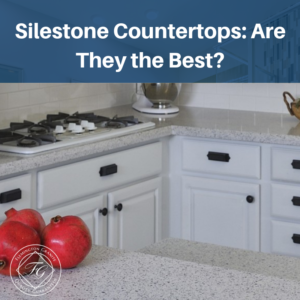
People mistakenly identify quartzite and quartz as the same material, although their only real similarity is in the name. Quartz is an engineered product that is reinforced with synthetic materials, while quartzite occurs naturally. Pressure in the Earth’s crust and high heat contribute to the appearance of the metamorphic quartzite stone.
Quartz Pros and Cons
• Maintenance is as easy as wiping with a damp cloth
• Wide range of color options
• Will not chip or dent under pressure
• Less durable as quartzite and can scratch easily from knives
• Can melt from exposure to high heat
Quartzite Pros and Cons
• All natural stone must be sealed once a year from stains and spills
• Limited choice in colors
• Susceptible to chips and dents
• Durable against high heat exposure
Quartz vs Quartzite Countertops
Color Options
Quartzite is typically limited to shades of pink, red, and gray that depend on the mineral deposits within the sandstone.
Although each slab is unique in appearance, quartz is a better choice for a larger variety. During the manufacturing process, synthetic materials are added to bring in different colors that are uniform. It will be susceptible to fading from sunlight, so it’s best to keep manufactured quartz countertops in the home.
Strength
There are some things you should always avoid when maintaining a quartz or quartzite countertop.
Never cut directly on the surface and never clean with abrasive products that could damage the surface.
Quartz is only slightly less strong as quartzite, especially when it comes to heat resistance. Exposing a quartz surface to heat exceeding 300 degrees Fahrenheit will cause it to melt.
Stone Countertop Maintenance
Since quartz is manufactured, it never has to be sealed at any point to maintain durability. However, quartzite needs to be resealed at least once every year if not twice.
Without sealing, discoloration from stains is going to be more likely unless you wipe with a damp cloth immediately after a spill. Cleansers stronger than warm water are usually not necessary to clean either surface.
Comparing Cost
The actual cost of both slabs is very close, but the real price difference comes with the cutting and installation process.
Quartz is basically ready to go from the moment of purchase because it is easily customized for the space. On the other hand, quartzite is more complicated because it has to be cut, buffed, and polished for a fitted installation.






